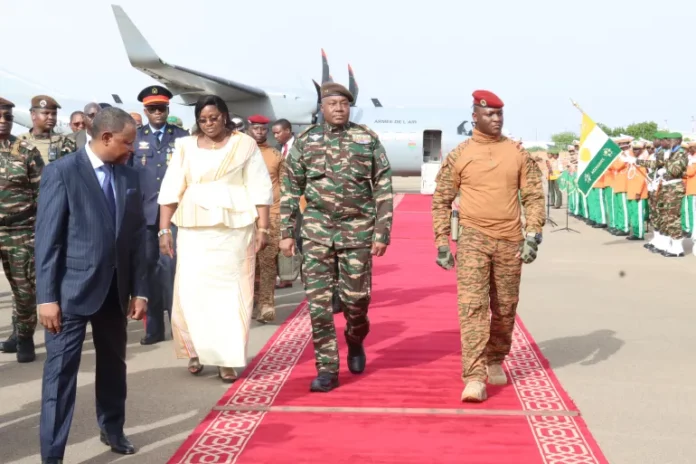The Economic Community of West African States (ECOWAS) has opened a crucial summit in Abuja, Nigeria, just a day after Burkina Faso, Mali, and Niger’s military rulers formed a new alliance, severing ties with the regional bloc.
The summit in the Nigerian capital follows calls from several West African leaders to resume dialogue with the coup-hit Sahel countries. On Saturday, during their own summit in Niamey, Niger, the three nations announced a defense pact known as the Alliance of Sahel States. This pact, signed in September, aims to enhance cooperation against armed rebellion and external aggression. The three countries exited ECOWAS in January after the bloc imposed sanctions in response to their respective coups.
ECOWAS appointed Senegalese President Bassirou Diomaye Faye as its envoy to engage with Burkina Faso, Mali, and Niger, urging them to reconcile after their withdrawal from the regional bloc following recent coups. This unprecedented move, decided during the Abuja summit, aims to address instability in the region, threatening longstanding agreements on trade and movement within West Africa.
Al Jazeera’s Ahmed Idris, reporting from Abuja, noted that the timing of the Sahel alliance’s announcement was strategic, aiming to demonstrate that Burkina Faso, Mali, and Niger could operate independently of ECOWAS. However, analysts warn that Mali and Niger, both landlocked, could face significant challenges if ECOWAS decides to isolate them.
“The military leaders of Burkina Faso, Mali, and Niger currently have momentum and are seeking global support,” Idris reported. “ECOWAS has a challenging task ahead to reintegrate these countries, should they even agree to return.”
During the summit, Niger’s General Abdourahamane Tchiani criticized ECOWAS, calling it “a threat to our states.” He emphasized the trio’s goal to establish an alliance free from foreign influence.
ECOWAS had previously lifted sanctions on Niger in February in a bid to mend relations following the July 2023 coup that brought Tchiani to power. However, progress has been minimal.
Idris highlighted that the three military leaders convened just a day before the ECOWAS meeting, suggesting the timing was intended to counter the regional bloc’s strategies. “The meeting in Niger was likely meant to outline their stance against rejoining ECOWAS,” Idris explained.
Senegal’s newly elected president, Bassirou Diomaye Faye, recently visited the three countries in an informal capacity to restore relations, though the outcomes of his efforts remain unclear. Despite significant challenges and uncertainties, the appointment underscores efforts to preserve regional unity amid escalating security concerns and economic implications for both member and neighboring states.
Adama Gaye, a political commentator and former ECOWAS communications director, remarked that the formation of the Sahel alliance has weakened the economic bloc. Despite ECOWAS’s significant name recognition, Gaye criticized its performance in regional integration, intra-African trade promotion, and security enhancement.
Gaye urged the bloc to engage in diplomacy to bridge the rift, reflecting widespread sentiments in West Africa about the need to reassess and possibly reinvent ECOWAS.




